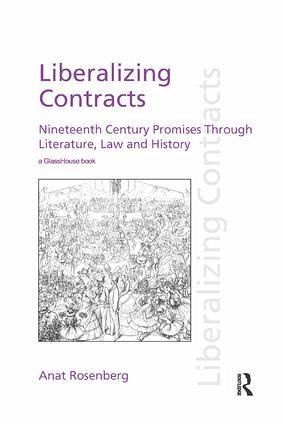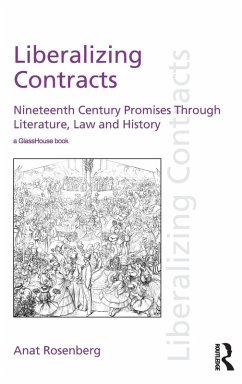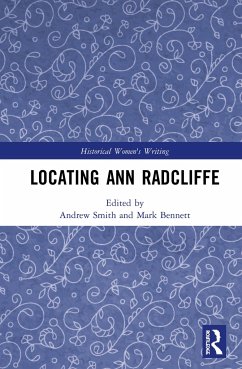
Liberalizing Contracts
Nineteenth Century Promises Through Literature, Law and History
Versandkostenfrei!
Versandfertig in 1-2 Wochen
58,99 €
inkl. MwSt.
Weitere Ausgaben:

PAYBACK Punkte
29 °P sammeln!
In Liberalizing Contracts Anat Rosenberg examines nineteenth-century liberal thought in England, as developed through, and as it developed, the concept of contract, understood as the formal legal category of binding agreement, and the relations and human practices at which it gestured, most basically that of promise, most broadly the capitalist market order. She does so by placing canonical realist novels in conversation with legal-historical knowledge about Victorian contracts. Rosenberg argues that current understandings of the liberal effort in contracts need reconstructing from both ends o...
In Liberalizing Contracts Anat Rosenberg examines nineteenth-century liberal thought in England, as developed through, and as it developed, the concept of contract, understood as the formal legal category of binding agreement, and the relations and human practices at which it gestured, most basically that of promise, most broadly the capitalist market order. She does so by placing canonical realist novels in conversation with legal-historical knowledge about Victorian contracts. Rosenberg argues that current understandings of the liberal effort in contracts need reconstructing from both ends of Henry Maine's famed aphorism, which described a historical progress "from status to contract." On the side of contract, historical accounts of its liberal content have been oscillating between atomism and social-collective approaches, missing out on forms of relationality in Victorian liberal conceptualizations of contracts which the book establishes in their complexity, richness, and wavering appeal. On the side of status, the expectation of a move "from status" has led to a split along the liberal/radical fault line among those assessing liberalism's historical commitment to promote mobility and equality. The split misses out on the possibility that liberalism functioned as a historical reinterpretation of statuses - particularly gender and class - rather than either an effort of their elimination or preservation. As Rosenberg shows, that reinterpretation effectively secured, yet also altered, gender and class hierarchies. There is no teleology to such an account.














